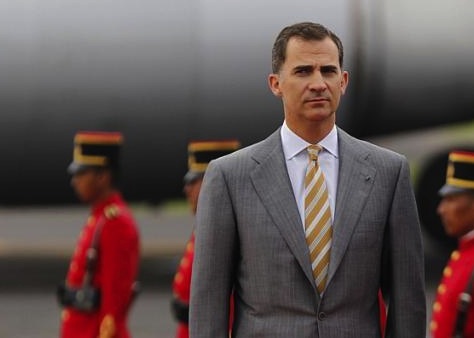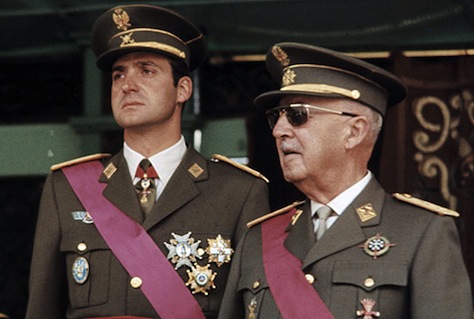Spain’s king, Juan Carlos I — who is to have once proclaimed that ‘kings don’t abdicate, they die in their sleep’ — surprised his country with the announcement earlier today that he would, in fact, abdicate the kingdom that he has held since 1975.![]()
Juan Carlos’s legacy today is undisputedly the role he played in the transition to Spanish democracy following the death of Spain’s longtime 20th century strongman Francisco Franco. As his country prepares for the inauguration coronation of his son, Felipe VI (pictured above), it’s not too early to consider whether Felipe can achieve the constitutional reforms that could mollify and temper Spain’s regionalism through some form of federalism.
It wasn’t necessarily destined that Juan Carlos de Borbón would ascend to the throne, in light of the proclamation of the second Spanish republic in 1931, Spanish king Alfonso XIII’s subsequent flight and, in 1941, his abdication after the conservative Franco came to power in 1939.
Though Franco allowed for Alfonso XIII’s grandson, Juan Carlos, to return to Spain for his education, his relationship to the monarchy remained throughout the Franco era. A conservative who supported the monarchy prior to 1931, Franco proclaimed Spain a monarchy in 1947, but that didn’t mean he was keen to hand any amount of power to the royal family. Instead, Franco left the monarchy officially vacant, ruling instead as ‘regent’ for the next 28 years. It was only in 1969 that Franco named Juan Carlos as crown prince, firmly clearing the path for Juan Carlos to succeed Franco as Spain’s head of state in 1975.
Having sworn an oath to Franco’s Movimiento Nacional (National Movement), it also wasn’t a certainty that Juan Carlos would move so swiftly transition his country toward democracy following Franco’s death. After all, Juan Carlos (pictured above with Franco) owed his position entirely to a mix of pro-Franco military forces and political elites — nationalist, fascist, conservative and monarchist.
Even after Juan Carlos announced Adolfo Suárez as his prime minister with a mandate of democratic transition, and even after Suárez himself formed Spain’s first elected government in the post-Franco era, Spain’s republicans — a mix of separatists, liberals, democrats and communists — still weren’t sure whether to trust Juan Carlos.
That changed for two reasons. Continue reading Can Felipe VI do for federalism what Juan Carlos did for democracy?

